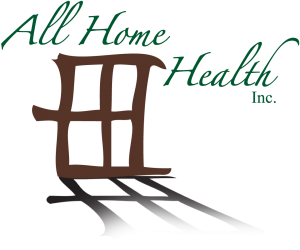When Is It Time to Consider In-Home Help for Aging Loved Ones?
Most older adults are healthy, happy, and independent. However, the natural aging process can bring about mental and physical changes that impact their ability to live safely and actively on their own.
While moving to assisted living or a nursing home isn’t always necessary, a noticeable decline in a senior’s abilities may signal it’s time for extra support. Family members often step in to help, but as care needs grow, hiring an in-home caregiver may become essential. For all of your PCA needs in Minnesota contact All Home Health located in Bloomington Minnesota serving the entire Twin Cities.
Recognizing the Signs That Help Is Needed
Deciding when to bring in additional support can be difficult. If you’re unsure whether it’s time, consider starting with a companion, home health aide, or personal care assistant. Both you and your loved one may benefit from this extra help.
Here are some signs that a senior may need support at home:
-
Increasing Care Needs: A decline in appearance, hygiene, or household cleanliness can point to changes in mental or physical health. Unopened mail, wearing unwashed clothes, forgetting medications, unexplained bruises, and weight loss are common red flags.
-
Neglected Hygiene: A significant change in personal care, such as body odor, urine smell, or refusal to change clothes, suggests a senior may be struggling with daily routines and could benefit from assistance.
-
Worsening Health Conditions: New or chronic medical issues may require professional care. In-home health providers can help manage medications, monitor vital signs, assist with therapy, and promote independence.
Caregiver Burnout Is Real
If you’re regularly handling errands, appointments, chores, and medication management for a loved one, it’s important to check in with yourself. Caregiving is demanding and can take a toll on your physical, emotional, and financial well-being. When caregiving begins to affect your health or lifestyle, it’s time to consider respite or professional in-home care.
Starting the Conversation About Home Care
Don’t wait for a crisis. Begin the discussion as soon as you notice changes.
Since elder care can be a sensitive topic, here are some tips for easing into the conversation:
-
Use Observations as a Starting Point: Gently share what you’ve noticed and ask your loved one how they feel about it. Encourage them to be part of the solution and offer ideas.
-
Focus on the Benefits: Emphasize how having extra help can benefit both of you. Framing home care as an extra pair of hands rather than a loss of independence can make the idea more acceptable.
-
Speak with Respect: Avoid talking down to your loved one. Approach the topic as a supportive partner in their care, not as a parent speaking to a child.
-
Seek Professional Support: If your loved one is resistant, bring in a doctor, social worker, or elder care expert. They can offer an objective perspective and help your loved one understand the benefits of home care.
If it is time for in home PCA services, contact All Home Health located in Bloomington Minnesota serving the entire Twin Cities.
